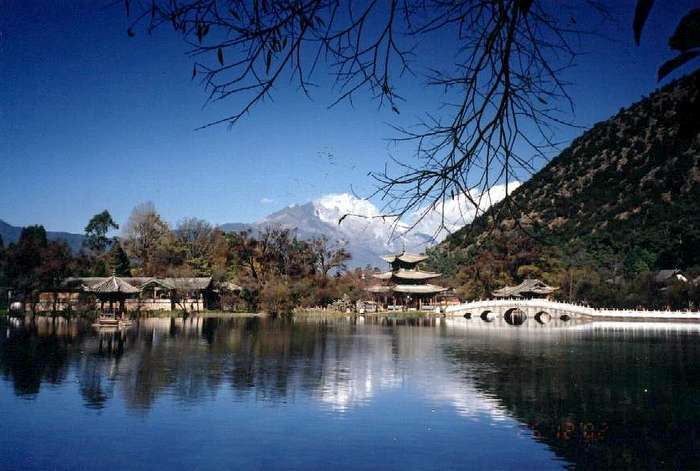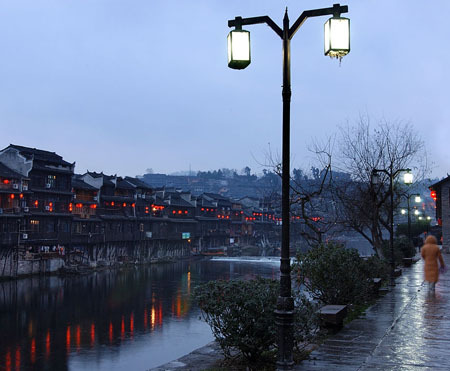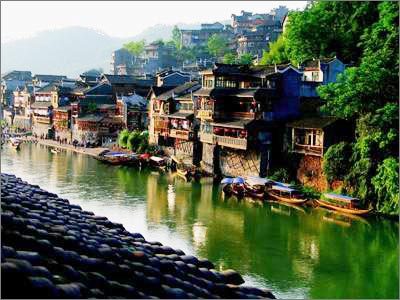
Fenghuang is the name of a small ancient town by the Tuojiang River. I remember the name because of Cui Cui, an innocent, kind-hearted girl in a novel by Shen Congwen, a renowned writer in China. It is in the town of Fenghuang that Cui Cui was born and grew up. I had long dreamed of visiting this town.
On a morning in early autumn, my dream came true. I had waited for this moment a long time; and perhaps because of this, I rushed into the small town as soon as I arrived. The Tuojiang River was covered in mist, and the houses on stilts rose out of the water. White fog shrouded the brown wooden pillars that supported these houses, making them look as if they were floating. A child’s cry came from an open window on the opposite side of the river. The cry was like a thin but firm thread, faint but persistent.

Alone, I aimlessly rambled through the lanes of the ancient town. The lanes seemed endless, curving round and round, forming an invisible but attractive swirl. As you walk around town, you can hardly feel the passage of time. Before you know it, time has softly and quietly glided past.
All these lanes radiate from the Rainbow Bridge located at the center of town. A typical covered bridge, the Rainbow Bridge has a bright-yellow body. Year after year, the Tuojiang River flows under the bridge as it transports visitors back to the last century, to Shen Congwen’s time. On both sides of the bridge there are houses built on stilts, special architectural structures particular to western Hunan Province. At dusk, sitting in the small teahouse on the Rainbow Bridge one can see these houses light up, one by one.

I walked among a stream of people composed of women carrying baskets on their backs, men leading a cow, photographers shouldering tripods, and porters looking for business. They were quite different from one another, but they walked toward the same direction and at the same pace. They even had the same expression on their faces.

